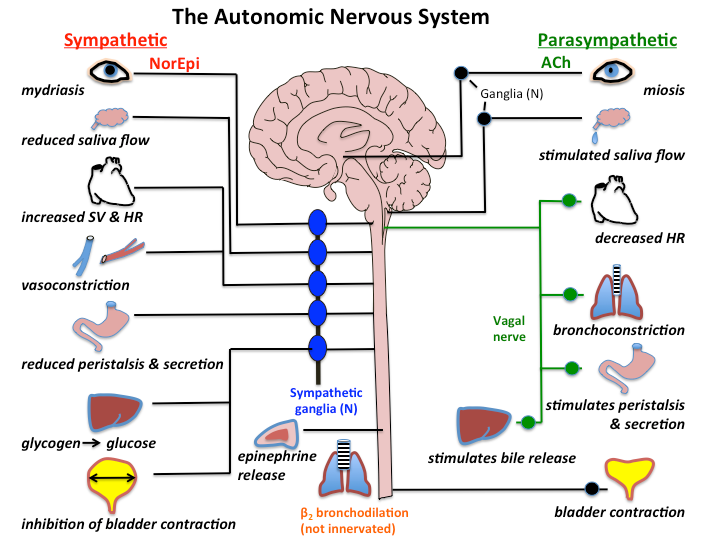Your autonomic nervous system is a network of nerves throughout your body that control unconscious processes. These are things that happen without you thinking about them, such as breathing and your heart beating. Your autonomic nervous system is always active, even when you’re asleep, and it is key to your continued survival.
The autonomic nervous system is a component of the peripheral nervous system that regulates involuntary physiologic processes including heart rate, blood pressure, respiration, digestion, and sexual arousal.
Sometimes, your body's way of responding to certain situations can fall out of sync. This off-balance state in your nervous system is called a dysregulated nervous system. There are many common signs that show your nervous system might be off track.
A dysregulated nervous system means the body is stuck in an imbalanced state—either constantly in high alert (sympathetic dominance) or sluggish and disconnected (parasympathetic overdrive). Prolonged dysregulation may possibly contribute to chronic stress-related illnesses.
Here are some of the signs you may be experiencing a dysregulated nervous system.
• Anxiety
• Panic attacks
• Digestive issues
• Trouble sleeping
• Constant fatigue
• Persistent muscle pain
There are also many stressors that can disrupt nervous system balance, including:
• Chronic stress
• Burnout
• Traumatic events
• Poor sleep habits
• Unhealthy diet
• Not taking time to relax

Twelve steps to help you regulate your nervous system:
- Try a physiological sigh or other breathing exercises
A physiological sigh is a natural deep breathing pattern consisting of two quick inhales followed by a longer exhale.
2. Move your body
Exercise can be a great way to relieve stress so take a walk, practice yoga, dance around your living room to your favourite song.
3. Use a weighted blanket
A weighted blanket may activate your parasympathetic nervous system through deep pressure touch.
4. Meditate to help calm your mind
Meditation can offer man benefits, including helping to reduce stress and restore the nervous system.
5. Introduce mindfulness into your routine to help reduce stress
Focusing on mindfulness, or just being present in the current moment can be therapeutic and help ground you.
6. Give yourself a massage or a hug
Touch can be a powerful tool for relaxation
7. Try tapping
Emotional Freedom Technique (EFT) is an emerging practice that involves gently tapping specific points on your body while focussing on a calming phrase.
8. Place your feet on the earth
Preliminary evidence suggests that direct contact with the ground (known as earthing) may help calm the nervous system and bring you back into balance.
9. Connect with nature
Step outside and feel the sun on your skin or listen to the birds.
10. Take a cold shower
The shock of a cold water shower can jolt the nervous system back into balance.
11. Use co-regulation
Co-regulation is where people tune into each other’s emotional states which can help stabilize and balance the nervous system.
12. Prioritise sleep
Sleep is when your bodies rejuvenate, rest and become restored.
Learn about this an more at the IAAN 2025 Conference being held Gold Coast, Qld, 11-13 September.




